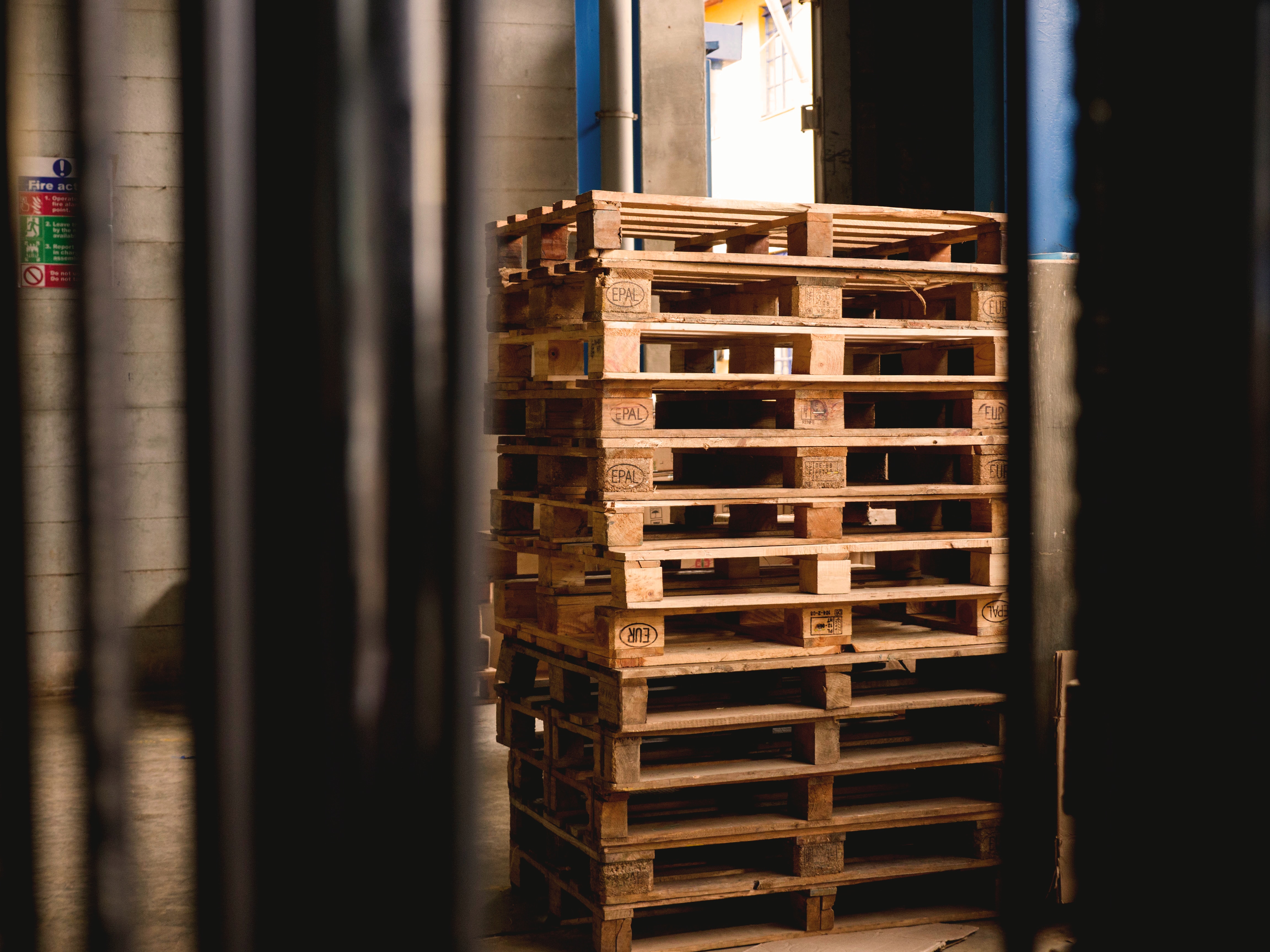Unloading Air Freight by Hand
In the world of logistics, where speed, efficiency, and automation are the standard, Express Container Management provides a highly skilled group of...

In the bustling world of warehousing and logistics, where efficiency and organization are paramount, pallets play a pivotal role that often goes unnoticed. By unloading 1000 containers per week on average in our busy season, ECM fills over 12,000 pallets per day with product in warehouses across the country. These wooden (or sometimes plastic or metal) platforms are the unsung heroes of warehouses across the globe, quietly facilitating the movement of goods and streamlining operations. In this blog post, we'll explore how pallets are used in warehouses across the world and the significant impact they have on the supply chain.
The Pallet Revolution
Pallets have revolutionized the way goods are stored, transported, and managed in warehouses. Their simple design, consisting of a flat, sturdy base supported by beams, has made them an indispensable tool for the logistics industry. Here are some key ways pallets are used in warehouses:
1. Storage and Organization: Pallets are used to stack and store goods efficiently. By elevating products off the ground, they help protect them from moisture, pests, and damage. This efficient use of vertical space maximizes warehouse storage capacity.
2. Ease of Handling: One of the most significant advantages of pallets is their compatibility with forklifts and pallet jacks. This means that goods can be quickly and safely moved around the warehouse, reducing the risk of injury to workers and minimizing the time it takes to load and unload shipments.
3. Standardization: Pallets come in standardized sizes, the most common being the 48x40 inch pallet. This standardization ensures that palletized goods are compatible with various types of equipment and storage systems, allowing for seamless interconnectivity across the supply chain.
4. Bulk Shipping: Pallets are essential for bulk shipping. They allow multiple products to be bundled together, making it easier to handle large quantities of goods, load them onto trucks, and secure them for transit. This not only saves time but also reduces transportation costs.
5. Tracking and Inventory Management: Pallets provide a convenient way to track inventory. Each pallet can be labeled with barcodes or RFID tags, enabling precise inventory management. This, in turn, helps warehouses maintain optimal stock levels and reduce the risk of overstocking or stockouts.
6. Cross-Docking: In the era of just-in-time inventory management, pallets facilitate cross-docking, a process where goods are transferred directly from incoming to outgoing shipments without being stored in the warehouse. This process minimizes handling and storage costs while speeding up order fulfillment.
Global Impact
The use of pallets extends far beyond the walls of individual warehouses. They are an integral part of global supply chains, influencing various industries and economies. Here's how pallets have a global impact:
1. Reduced Environmental Impact: Wooden pallets, which are the most common type, are often made from sustainably sourced timber. Moreover, they are reusable and recyclable, contributing to environmental sustainability in logistics.
2. Economic Efficiency: Pallets help reduce transportation costs by optimizing space and streamlining loading and unloading processes. This efficiency ultimately leads to cost savings for businesses and consumers alike.
3. International Trade: Pallets play a crucial role in international trade, where goods need to be handled efficiently and quickly at various points along the supply chain, including ports and distribution centers.
In the world of warehousing and logistics, where every second counts and efficiency is the key to success, pallets are the unsung heroes that make it all possible. Their unassuming design belies their significant impact on the global movement of goods. From storage and organization to transportation and international trade, pallets have revolutionized the way we manage and distribute products. Next time you see a pallet in a warehouse, take a moment to appreciate the quiet but essential role it plays in keeping the wheels of commerce turning. Pallets truly are the backbone of the modern supply chain.

In the world of logistics, where speed, efficiency, and automation are the standard, Express Container Management provides a highly skilled group of...

Unloading Tipped Loads: How We Can Help Your Business

Container unloading is a critical step in the logistics process and doing it safely and efficiently is paramount. When unloading containers with ECM...